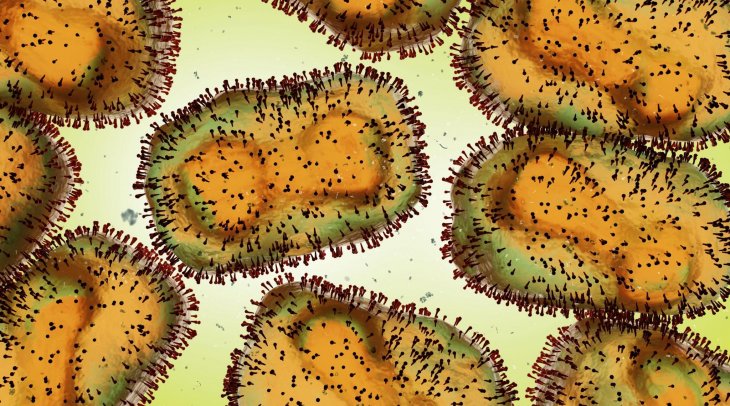MPox (Orthopox Virus)

The Baltimore City Health Department is monitoring the mpox (monkeypox) virus activity in the United States closely.
Individuals who are concerned they may have Mpox should call their provider for testing. If you do not have a primary care provider, you can make an appointment at the BCHD Sexual Health and Wellness Clinics for Mpox testing.
Baltimore City Health Department MPox Vaccine Appointments
Information on Mpox vaccine can be found here
Terminology
The terms "Monkeypox", "MPX" and "Mpox" all refer to the virus causing monkeypox disease
The World Health Organization has recently recommended adopting "Mpox" as the preferred term for the disease, addressing concerns of stigmatizing language
BCHD is working to update language and terminology on their website and materials
The current situation in the US
On May 20th, 2022, the CDC issued a Health Alert Network Health Advisory regarding the first US monkeypox case in 2022 detected in a Massachusetts resident. On June 16, 2022, the Maryland Department of Health reported the first presumed human monkeypox virus infection identified in a Maryland resident. We are closely monitoring Mpox transmission in the US and ensuring rapid identification of cases.
Background
Mpox is a rare but serious illness caused by infection with the Mpox virus. Mpox can infect humans and other animals, such as monkeys and rodents. In the past, people in the United States who developed mpox had usually traveled internationally or were infected by animals imported to the U.S. Prior to this outbreak, Texas and Maryland each reported a case of Mpox in 2021 in people with recent travel to countries where Mpox is endemic in animals.
Since May 2022 many countries worldwide have detected cases, including in Europe and North America. Many of these cases had no travel to endemic areas in the central and western regions of Africa. It’s not clear how these people were exposed to monkeypox, but early data suggest that gay, bisexual, and other men who have sex with men make up a high number of cases. However, anyone who has been in close contact with someone who has Mpox is at risk, regardless of gender or sexual orientation.
How does the Mpox virus spread?
The virus spreads through close, personal, or skin-to-skin contact with someone who has Mpox. For example:
- Touching rashes, sores, body fluids, or scabs by hugging, kissing, touching, intimate or sexual contact
- Contact with objects, fabrics, and surfaces that have been contaminated by fluids or sores (clothing, bedding, linens, towels)
- Through respiratory droplets or saliva entering the eyes or mouth following prolonged face-to-face contact, like talking closely with someone
In parts of central and west Africa where Mpox occurs, people can be exposed through bites or scratches from rodents and small mammals, preparing wild game, or having contact with an infected animal or possibly animal products.
Signs and symptoms

Symptoms of Mpox usually begin 7-14 days after exposure, but can range from 5-21 days.
- The initial symptoms of mpox are usually: Fever, chills, body/muscle/headaches, swollen lymph nodes, fatigue
- 1 to 3 days after fever a rash appears, sometimes on or near the genitals or anus, but sometimes in other areas like the hands, feet, chest, or face. Sores and rash may be inside the body, including the mouth, vagina, or anus. If a person was infected during sexual contact, the rash might only be on the genitals. If a person was infected through anal sex, they may develop anal or rectal irritation. The rash will go through several stages. The sores often begin as small, red bumps, which become fluid-filled pustules that eventually scab over and fall off.
- Some people experience a rash or sores first, followed by other symptoms, and some only experience a rash or sores without other symptoms.
- Symptoms usually last 2-4 weeks. People with symptoms should stay isolated the entire time they have symptoms. The illness is over when all pustules have scabbed over and fallen off, and new skin is present.
- People are contagious the entire time they have symptoms.
Prevention
Because Mpox can be spread via skin-to-skin contact with an infected person, it is important to avoid close, intimate, or sexual contact with anyone who has flu-like symptoms or a rash.
Condoms will not prevent Mpox.
- Avoiding contact with people that have symptoms or are confirmed to have the virus, as well as materials they may have touched
- Wearing a facemask around others
- Washing your hands often with soap and water, or using hand sanitizer
- More information on safer sex and Mpox can be found here (link to the resource on the CDC website)
If you have symptoms
If you start experiencing symptoms, the most important step you can take is to stay home and isolate yourself from other people in your household. Be alert for the appearance of new rashes characterized by sores, bumps, or fluid-filled bumps, and seek medical evaluation if you develop such a rash. Before your visit, notify your healthcare provider that you are concerned about monkeypox, and whether you recently had close contact with a person who had a similar rash or a person who has been diagnosed with monkeypox. If you have upcoming international travel, make an appointment at a travel clinic to see if you need any vaccinations.
Contact Information
Acute Communicable Diseases
Division of Population Health and Disease Prevention
1001 E. Fayette St., Baltimore MD 21202
Phone number 8:30am to 4:30pm 410-396-4436 || Fax number 410-625-0688
After hours 410-396-3100
